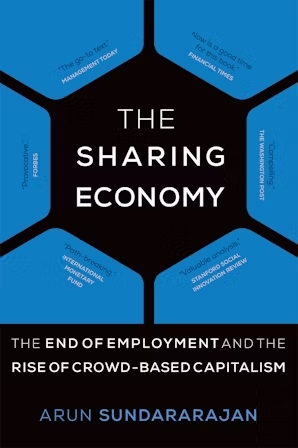
In a different age, Arun Sundarajan, an economist at New York University’s Stern School of Management, would have been regarded as a “leftist.” All that focus on “sharing,” would have made the book look like a Communist Manifesto.
But wait, the “Sharing Economy” is not about the present. Rather, it is about the future, if not already the face of global capitalism. Be it AirBnB, Uber, YouDrive or other forms of Human to Human (H2H) businesses, the “Sharing” or “on demand economy,” is allowing strangers with some form of value added services, goods, facilities, even time to connect with another total stranger, sometimes without any human interaction at all.
All that is needed is a person sending an email to confirm his or her needs or a person texting into a specially designed app. What makes Arun Sundarajan’s book unique is his speculation if this is the dawn of the end of human employment.
If more and more strangers can interact with one another fulfilling each other’s needs is there a need for hotels, taxis, tailors, or, even teachers? This is a deep, relevant, and philosophical question about “crowd-based capitalism.”
But it is also a question that policy makers themselves have to resort to asking, without which their public policy may no longer be relevant. Indeed, “crowd-based capitalism,” has some moral dimensions, too. What if an app allows a person to sell his or her child to the highest bidder? Would this be considered immoral since it is based on the concept of a willing buyer and seller?
As the H2H economy takes hold more moral and philosophical issues will take hold. This book did not delve into these moral conundrums at all. But this is only the author’s first book. In the days to come, more moral and ethical issues will arise.
